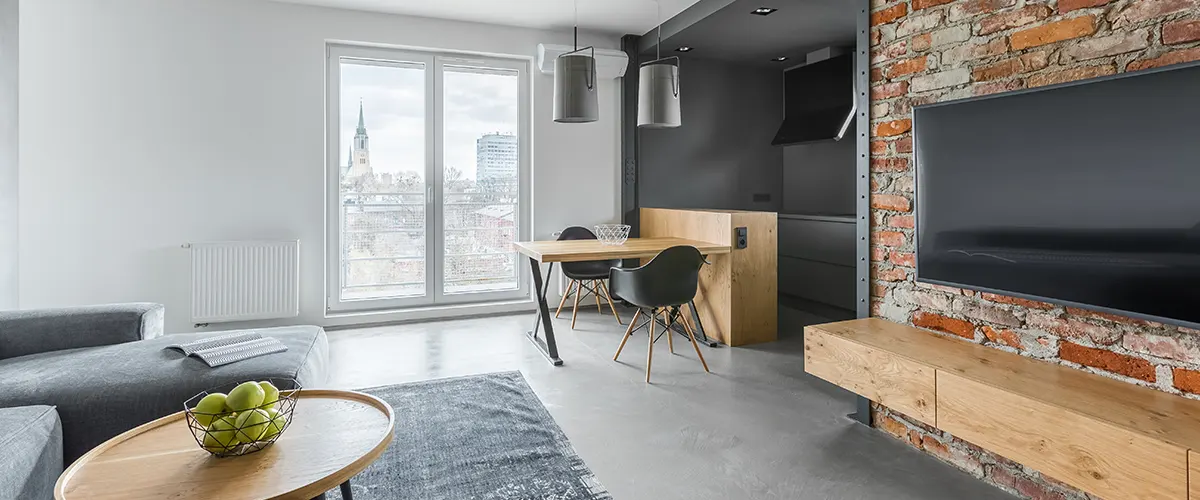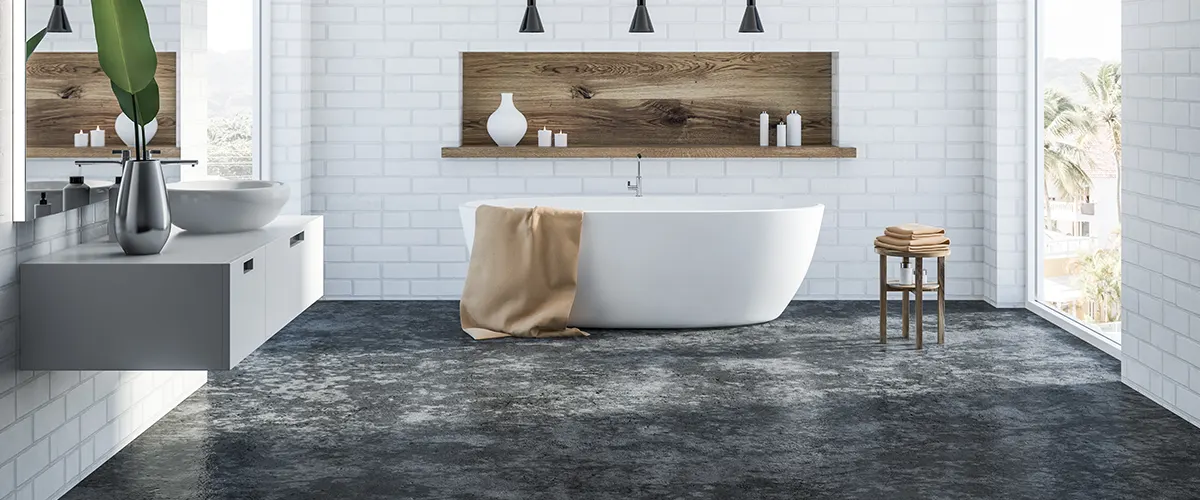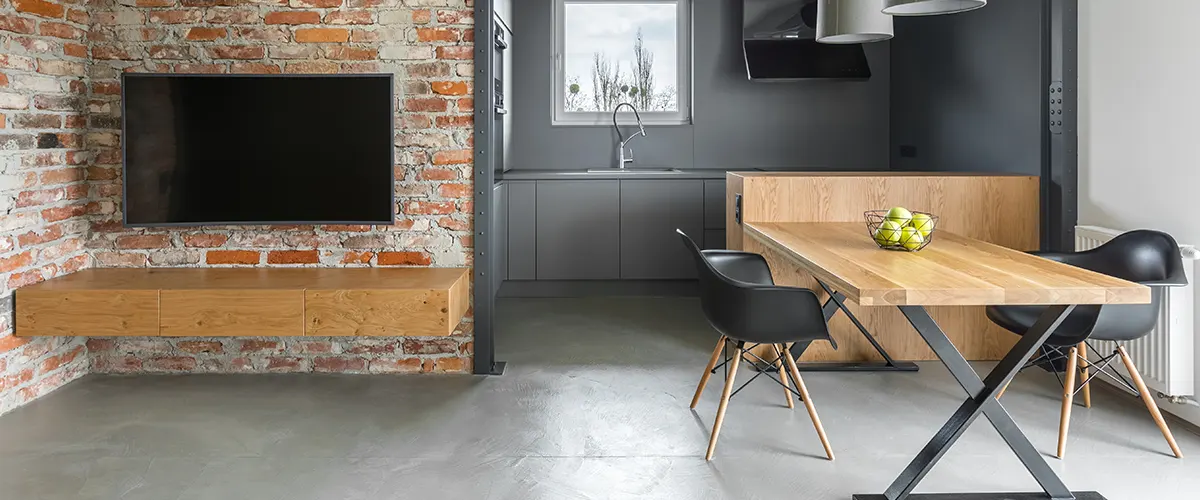There is a lot to consider when choosing the right flooring material for your home or office. Concrete has become a popular choice in recent years, thanks to its durability and low maintenance requirements. However, there are also some disadvantages to using concrete for floors that you should be aware of before making a decision. In this article, we will take a look at the pros and cons of concrete flooring so that you can make an informed choice about whether it is right for you.
What Is A Concrete Floor?

Concrete Floors: Pros
Durability
High durability is one of the many benefits of decorative concrete flooring. This type of flooring is extremely strong and resilient, able to withstand heavy foot traffic and equipment. It is also difficult to damage, with a nearly impossible chance of chipping or scratching.
As a result, a new concrete floor is ideal for high-traffic areas such as commercial buildings and industrial warehouses. It provides a durable surface that can withstand years of wear and tear, but it also has a sleek and polished look that enhances the aesthetic of any space. You can choose to opt for polished concrete flooring in a living space that houses a large family or pets. However, since a concrete floor is quite hard, you have to be careful to not harm children in case they fall on it.
Cost-Effective
Easy To Maintain

Concrete Floors: Cons
Cold and Unwelcoming
While concrete floors have many benefits, one downside is that they can feel cold. This is due to the fact that concrete subfloors don’t retain heat well. You can install radiant heating cables on your concrete floors to remedy this. This will help to reduce heat loss and keep your home more comfortable.
In addition, radiant heating usually costs less to operate than forced-air systems. So, if you’re looking for a way to keep your home warm and save money on your energy bill, radiant heating may be the right solution for you. But in general, it’s best to use concrete on garage floors or other spaces that don’t need heating.
Can Cause Damage
Concrete is a very sturdy and durable material, however, it can be quite hard and unforgiving if you happen to fall on it. This is why it’s important to take care when walking on or around concrete floors. If you do happen to fall, the best thing to do is to try and relax and roll with the fall to help disperse the impact.
If you can, try and land on a fleshy part of your body like your butt or thighs to help cushion the blow. If you have any cuts or scrapes from the fall, be sure to wash them thoroughly with soap and water to prevent infection. Falling on concrete can cause serious injuries, so it’s always best to be as careful as possible.
Moisture-Sensitive
Any concrete flooring, no matter how well it is sealed, is going to be susceptible to moisture penetration if there are cracks or holes in the surface. Over time, even the smallest hairline crack can widen and allow liquid to seep in. It can create the perfect environment for mold or mildew to grow when this happens. Not only is this unsightly, but it can also lead to health problems for anyone who is exposed to it.
That’s why it’s so important to have a professional inspect your flooring on a regular basis and repair any cracks or damage that they find. Doing this can help prevent moisture from penetrating your concrete flooring and causing serious problems down the line.

Concrete Surface: Summary
Pros
- concrete floors are very durable and can last for many years with proper care
- concrete floors are easy to maintain and clean
- concrete floors are resistant to moisture and staining
- available in a variety of colors and finishes
- can be used in both indoor and outdoor spaces
Cons
- concrete floors can be cold and uncomfortable to walk on barefoot
- concrete floors can be difficult to install, and the concrete must be properly sealed to prevent moisture damage
- concrete floors can be susceptible to cracking if they are not installed correctly
- concrete floors require regular maintenance, such as sweeping and mopping, to keep them looking their best
- can be used in both indoor and outdoor spaces
Closing Thoughts
So there you have it – everything you need to know about concrete floors! If you’re still undecided or would like more information before making a decision, don’t hesitate to get in touch with us. We can give you advice on the best type of flooring for your home and provide quotes for installation and repair.

